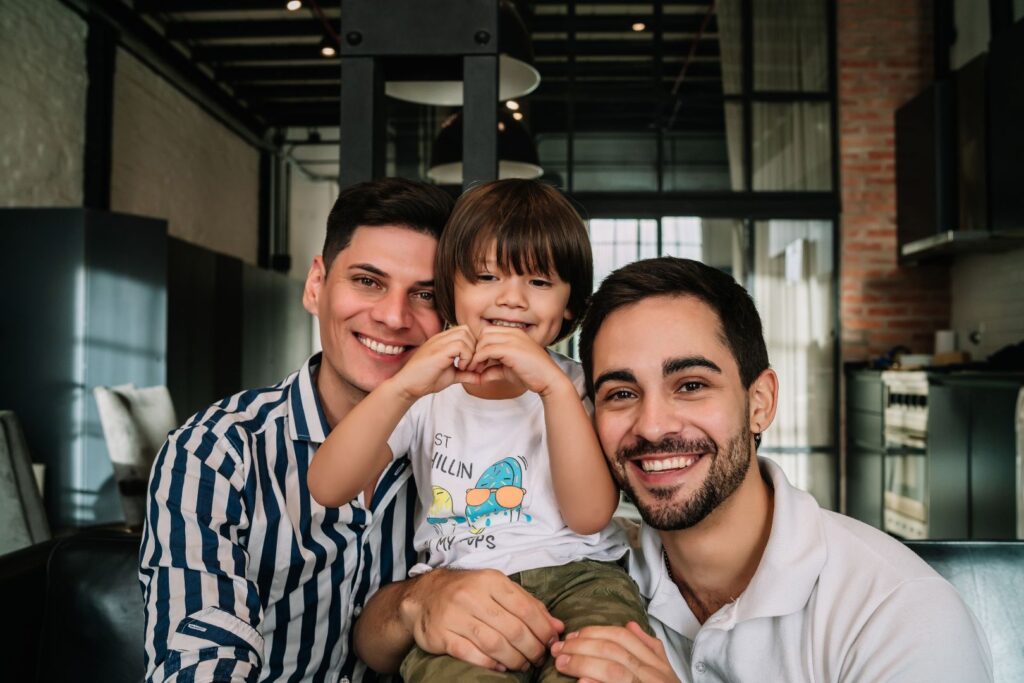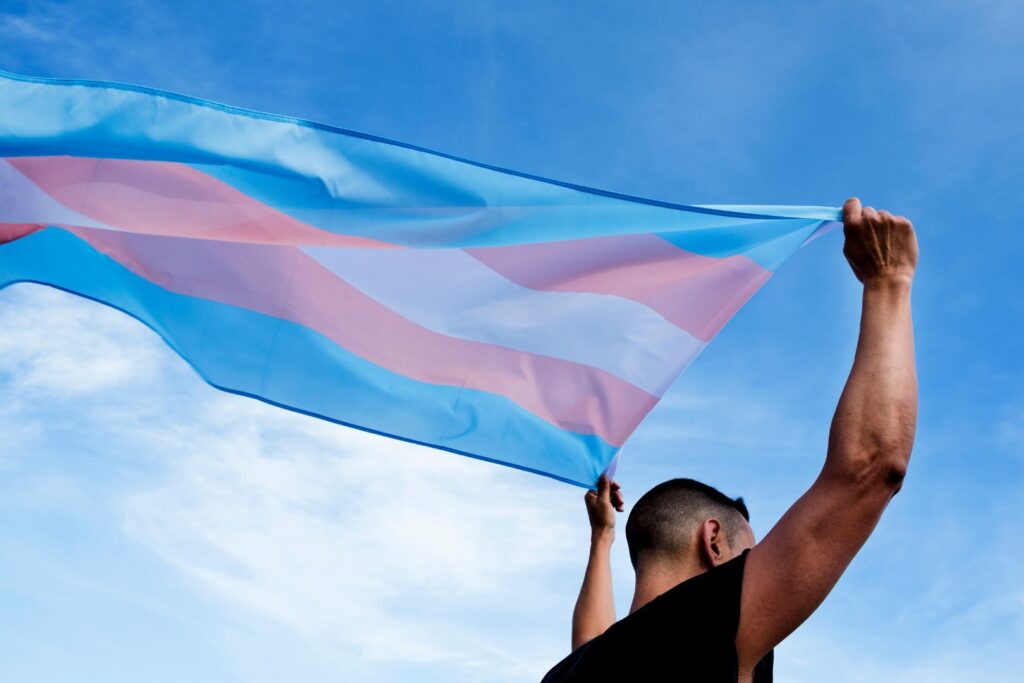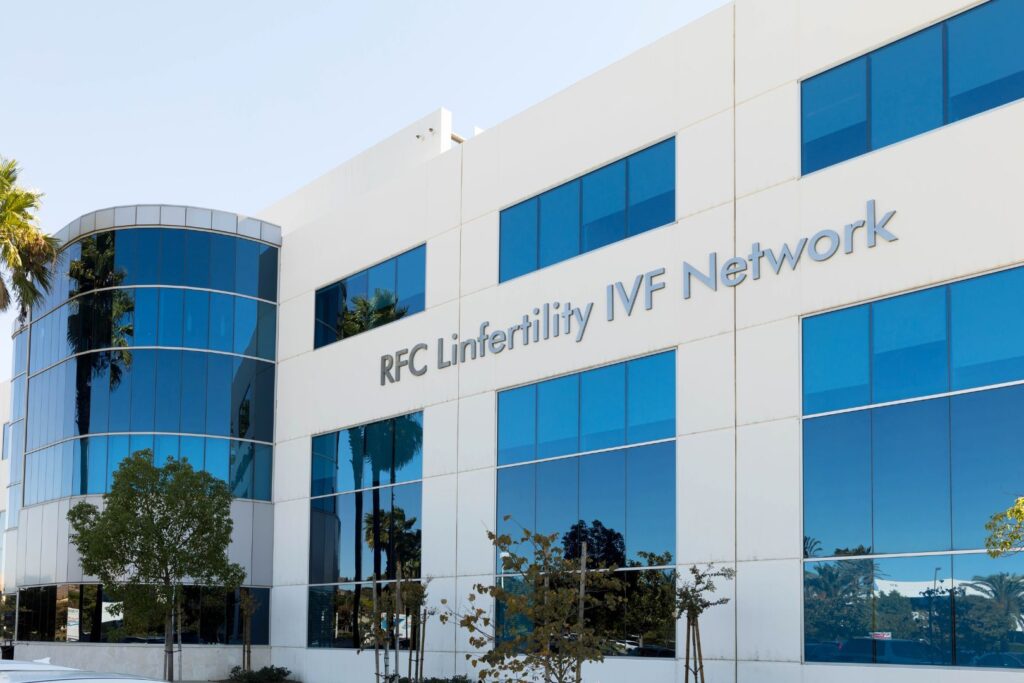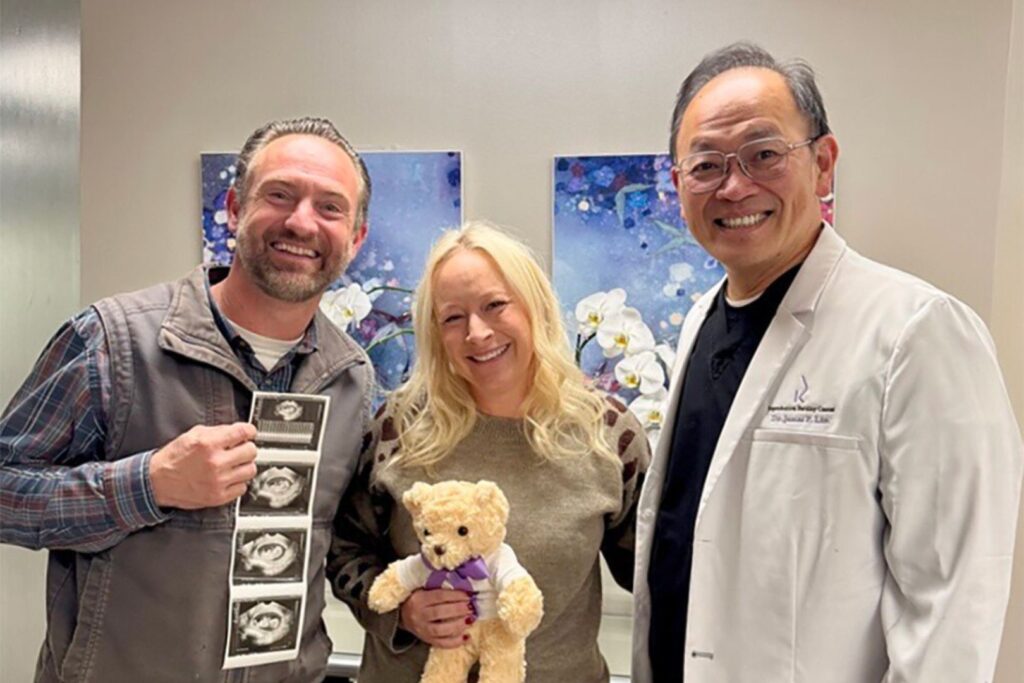Creating a family is a deeply personal journey, and for LGBTQ+ individuals and couples, that journey can be filled with both excitement and misinformation. Unfortunately, persistent myths about LGBTQ+ fertility creates unnecessary potential barriers to care. But, it’s time to clear the air when it comes to misconceptions about LGBTQ+ fertility care!
In this blog, we’ll debunk the top five myths about LGBTQ+ fertility and share clear, inclusive information about available treatments for LGBTQ+ individuals like reciprocal IVF, egg and sperm donation, surrogacy, and fertility preservation.
Table of Contents
- Myth 1: LGBTQ+ couples cannot have biological children
- Myth 2: Gender-affirming hormones make fertility care impossible
- Myth 3: Only the individual who is biologically linked is legally recognized as a parent
- Myth 4: LGBTQ+ patients don’t experience infertility
- Myth 5: All clinics are the same when it comes to LGBTQ+ care
- RFC is a Family Equality–Certified, Gender-Affirming Fertility Clinic
Myth 1: LGBTQ+ couples cannot have biological children
The Truth: LGBTQ+ couples absolutely can have biological children with the help of modern fertility treatments!

LGBTQ+ Fertility Services Are Growing
While fertility treatment was historically tailored to heterosexual couples, that’s changing fast. Inclusive LGBTQ+ fertility clinics now provide specialized services, including:
- Donor sperm IUI and IVF for lesbian couples and trans women
- Donor egg IVF for gay men and single parents
- Reciprocal IVF for lesbian couples
- Surrogacy options for couples and individuals unable to carry
- Fertility preservation for transgender individuals before transitioning
Donor Sperm and IUI (Intrauterine Insemination)
For lesbian couples or single people assigned female at birth (AFAB), IUI involves placing donor sperm directly into the uterus during ovulation. This is one of the most affordable and least invasive options.
IVF (In Vitro Fertilization) with Donor Sperm or Donor Eggs
LGBT in vitro fertilization (IVF) is when an egg is fertilized with donor sperm in a lab, and the resulting embryo is transferred into the uterus.
- Lesbian couples may use donor sperm with one partner’s eggs.
- Gay couples may use donor eggs with a surrogate (gestational carrier).

Reciprocal IVF for Lesbian Couples
In reciprocal IVF, one partner provides the eggs and the other carries the pregnancy. This allows both partners to be biologically and physically involved in the process.
What is reciprocal IVF? It involves:
- Ovarian stimulation and egg retrieval from one partner
- Fertilization with donor sperm in the lab
- Embryo transfer into the other partner’s uterus
To learn more about reciprocal IVF, click here.
Surrogacy with Donor Eggs and Partner’s Sperm
What is a surrogate? A surrogate, also commonly referred to as a gestational carrier (GC), is an individual who carries a pregnancy for someone else, using an embryo created from an egg and sperm that may or may not be from the intended parent(s). This is a common path for same-sex male couples.
To learn more about donor egg IVF and surrogacy for same-sex male couples, click here.
Fertility Preservation

Freezing sperm or eggs before transition preserves the option to later use them in conjunction with donor eggs or sperm. For trans women, preserved sperm can be used to fertilize donor or partner eggs in the future and transferred into a gestational surrogate or a partner’s uterus.
For trans men, frozen eggs can be fertilized later using donor sperm or a partner’s sperm, and the resulting embryos can be transferred into a gestational surrogate or the trans man himself, if he chooses to carry the pregnancy.
This proactive step can open up a range of transgender fertility options, helping ensure future family-building choices stay open, no matter where your gender journey takes you.
Myth 2: Gender-affirming hormones make fertility care impossible
The Truth: Hormone therapy may affect fertility, but it doesn’t make it impossible.

For transgender individuals, gender-affirming hormone therapy (like testosterone or estrogen) can reduce or temporarily suppress someone’s fertility, but it doesn’t eliminate all possibilities, especially with the right care.
Fertility Preservation for Transgender Individuals
- Before beginning hormones: Individuals have the option to preserve their fertility by freezing their eggs or sperm.
- After starting hormones: If children are a consideration in your journey, you can still pause hormone therapy to retrieve eggs or produce sperm.
Fertility Treatment While Trans
Some transgender men and nonbinary individuals pause testosterone to undergo egg retrieval, IVF, or even carry a pregnancy. Trans women may choose to preserve sperm before starting estrogen or use a surrogate later. Every journey is unique, and every body is different, so it is important to consult a fertility specialist when it comes to your fertility options.
At RFC, we provide compassionate transgender fertility care and personalized support to help patients feel safe, affirmed, and in control of their family-building path.
Myth 3: Only the individual who is biologically linked is legally recognized as a parent
The Truth: Legal parentage doesn’t always follow biology, and both partners in LGBTQ+ families can be legally recognized as parents.

Legal recognition of parentage varies by state. In many cases, both partners can and should be recognized through:
- Second-parent adoption
- Pre-birth parentage
- Legal agreements
- Recognition through marriage or birth certificates
Legal Parentage Rights in California
Same-sex Couple Parentage
California’s Uniform Parentage Act acknowledges diverse modern families and ensures equal treatment to LGBTQ+ parents. Assembly Bill (AB) No. 2684 has been added to this act to allow both different-sex and same-sex parents who conceived using assisted reproduction to use the Voluntary Declaration of Parentage process to establish legal parentage.
Parentage Through Surrogacy
Additionally, in the case of surrogacy, Assembly Bill No. 1217 regulates California surrogacy agreements, stating that if all requirements are met, the intended parents can establish legal parentage before birth.
Whether you’re pursuing donor egg IVF, reciprocal IVF, or surrogacy, it’s important to work with an LGBTQ-friendly legal team to ensure both parents’ rights are fully protected, especially when crossing state or international lines.
To learn more about California Fertility Laws, click here.
Myth 4: LGBTQ+ patients don’t experience infertility
The Truth: Just like anyone else, LGBTQ+ individuals can and do experience infertility.

A common misconception is that LGBTQ+ people only face barriers to parenthood because they don’t conceive through traditional methods. While many LGBTQ+ individuals and couples pursue fertility treatments to access donor sperm, donor eggs, reciprocal IVF, or surrogacy, medical infertility can affect anyone. It is just as prevalent in the LGBTQ+ community as it is among cisgender heterosexual people.
In fact, LGBTQ+ patients may face a wide range of medical challenges that affect fertility, including:
- Ovarian dysfunction or other hormonal imbalances in transgender men unrelated to testosterone therapy
- PCOS or endometriosis in cisgender lesbian individuals
- Low sperm count in one or both partners in gay male couples
- Age-related fertility decline, which can impact anyone
This common misconception stems from the definition that infertility is the inability to conceive after 12 months of unprotected sex. However, this definition does not include LGBTQ+ couples, single parents by choice, and transgender individuals.
Myth 5: All clinics are the same when it comes to LGBTQ+ care
The Truth: Inclusive, affirming fertility care is not the standard everywhere, but it should be.

Choosing the right clinic can make all the difference in your fertility journey, especially for LGBTQ+ individuals and couples. While many clinics offer reproductive services, not all are trained and equipped to deliver inclusive and identity-affirming care.
LGBTQ+ individuals deserve providers who understand the medical and emotional complexities of their care, from intake forms to treatment protocols.
What to Look for in an LGBTQ+ Fertility Clinic
- A deep understanding of fertility options for LGBTQ+ families
- Experience with reciprocal IVF, donor egg IVF, and surrogacy
- Inclusive intake forms and gender-neutral language
- Staff trained in gender-affirming care and cultural humility
RFC is a Family Equality–Certified, Gender-Affirming Fertility Clinic

At Reproductive Fertility Center (RFC), we believe everyone deserves the chance to grow their family in a safe, supportive, and affirming environment. We are honored to be listed in the Family Equality directory as a gender-affirming fertility clinic in California, recognized for our ongoing commitment to LGBTQ+ inclusion and advocacy.
As a Family Equality–certified ally, we’re proud to:
- Provide LGBTQ+ fertility services that honor every identity
- Support fertility options for transgender people, including preservation and treatment
- Offer compassionate care that supports the emotional and physical well-being of LGBTQ+ individuals and couples
Your identity will never be a barrier to care here. Whether you’re exploring fertility preservation, considering reciprocal IVF, or looking into what a surrogate is, our team is ready to support your journey with compassion and expertise.
At RFC, we don’t just welcome LGBTQ+ families, we’re built to serve them. Let’s create a plan that’s right for you, your goals, and your future.




